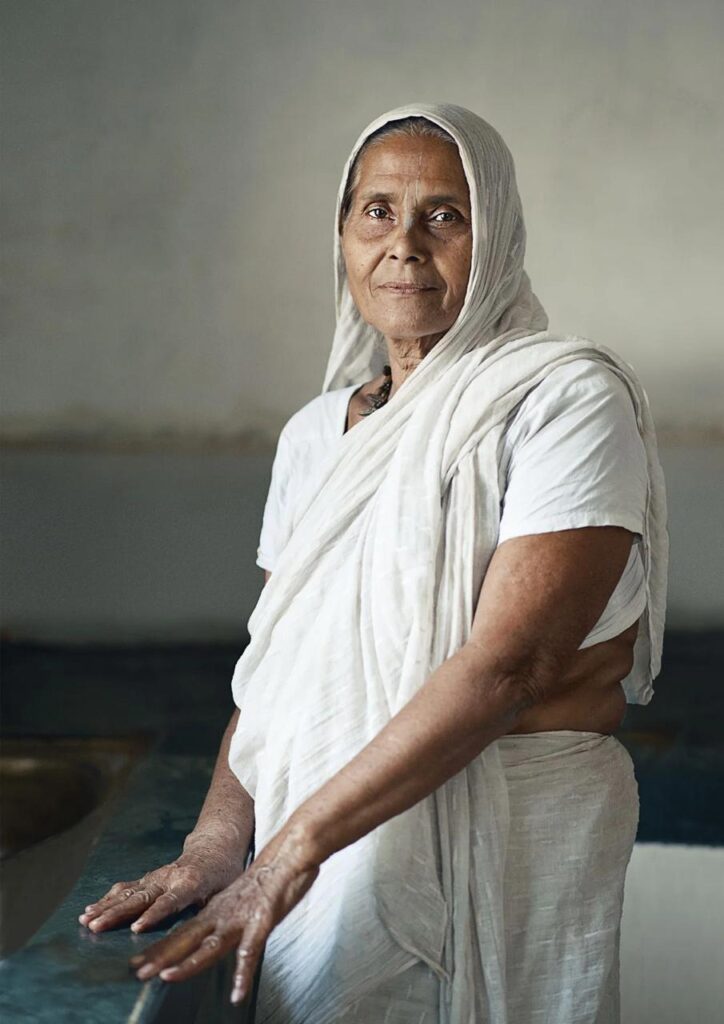The Power of Human Connection
By Lokanath Mishra
Kumudini, a widow, lived a simple and serene life in the sacred town of Puri. Her life had taken a dramatic turn when she lost her husband just six months after their marriage. Adhering to the societal norms of Brahmin culture, which discouraged remarriage for widows, Kumudini had chosen to dedicate her life to her family and spiritual pursuits. She had adopted her nephew, Rama Krishna, as her own son, and he had brought immense joy and purpose to her life.

As Rama Krishna grew up, he pursued a successful career in software engineering, working remotely from the comfort of his home. At the age of 28, he married Sumita, and their relationship seemed perfect in the early days. However, as time passed, they faced challenges in their relationship. Sumita’s outgoing and social nature often clashed with her mother-in-law’s expectations, leading to frequent arguments.

When Rama Krishna’s job required him to move abroad, Sumita wanted to accompany him, but he initially hesitated, citing his mother’s needs. However, after a heated argument, he eventually agreed to take her along. The couple settled down in America, as the company Rama Krishna worked for didn’t allow him to return to India. Kumudini was left alone in Puri, but she was grateful that Rama Krishna ensured her financial well-being, sending her money regularly to support her livelihood.

Rama Krishna and Sumita’s family grew with the arrival of two children, and every year, they would visit Puri during the Rath Yatra festival, staying with Kumudini for at least 15 days. These visits brought immense joy to Kumudini, who would spoil her grandchildren with love and affection. However, as the children grew older and entered high school, their schedules became busier, and they discontinued their visits to Puri.

Despite the physical distance, Rama Krishna would frequently call Kumudini on her mobile phone, keeping her updated about his life, family, and children. Kumudini would cherish these conversations, feeling grateful for the love and care her adopted son showed her, even from afar. She would look forward to their phone calls, which brought her closer to her family and filled her heart with warmth and happiness.
But as the years went by, Rama Krishna’s calls became less frequent. He would call Kumudini only occasionally, once every six months or so. Though he continued to send money to her regularly, the lack of frequent calls made Kumudini feel a little lonely. Despite this, she remained strong and content, knowing that her son’s love and care for her had not diminished. She would still cherish the occasional phone calls and look forward to hearing from her family, even if it was less often than before.
As the days went by, the young newspaper girl, Rohini, grew fond of Kumudini. She would often chat with her for a bit when she delivered the newspaper, and Kumudini would share stories about her life and her son, Rama Krishna. Rohini noticed that Kumudini’s eyes would light up whenever she talked about her son, and she could sense the deep love and longing she had for him.

One day, Rohini asked Kumudini, “Ma’am, why don’t you go live with your son in America? I’m sure he’d be happy to take care of you.” Kumudini smiled wistfully and said, “I’ve thought about it, Rohini, but I can’t go beyond Puri town, leaving Prabhu Shri Jagannath. Every day, I visit the Jagannath temple for darshan and prasad seven. Besides, this is my home, and I have my memories here. I’m content with the life I lead, but it’s nice to have someone to talk to every day.”

Rohini nodded understandingly and said, “I can visit you more often, Ma’am. We can chat, and I’ll keep you company.” Kumudini’s eyes welled up with tears, and she said, “Thank you, Rohini. You’re a kind soul. It’s people like you who make me feel less alone.”
As Rohini continued to deliver newspapers to Kumudini’s house, Kumudini would often invite her in for a cup of tea and some snacks. Rohini would look forward to these daily treats, and she enjoyed listening to Kumudini’s stories and experiences.

As Rohini spent more time with Kumudini, she realized that her story was not unique. Many elderly people in her community were living alone, struggling to cope with the loss of their loved ones or the distance from their families. She decided to spread awareness about the importance of taking care of our elderly parents and the value of human connection in their lives.

Rohini started a small initiative in her community, where she and her friends would visit the elderly residents, listen to their stories, and offer companionship. Kumudini’s story had inspired her to take action, and she knew that even small acts of kindness could make a big difference in someone’s life.
As the community came together to support their elderly residents, Kumudini’s life began to change. She was no longer alone, and she had people to talk to and share her stories with. Rama Krishna, who had been busy with his life in America, was grateful to know that his mother was being taken care of, and he could focus on his own life without worrying about her.

Kumudini’s story served as a reminder to everyone in the community about the importance of human connection and the need to take care of our loved ones. It showed that even in a world where technology had made communication easier, personal touch and human interaction were still essential for our well-being.
